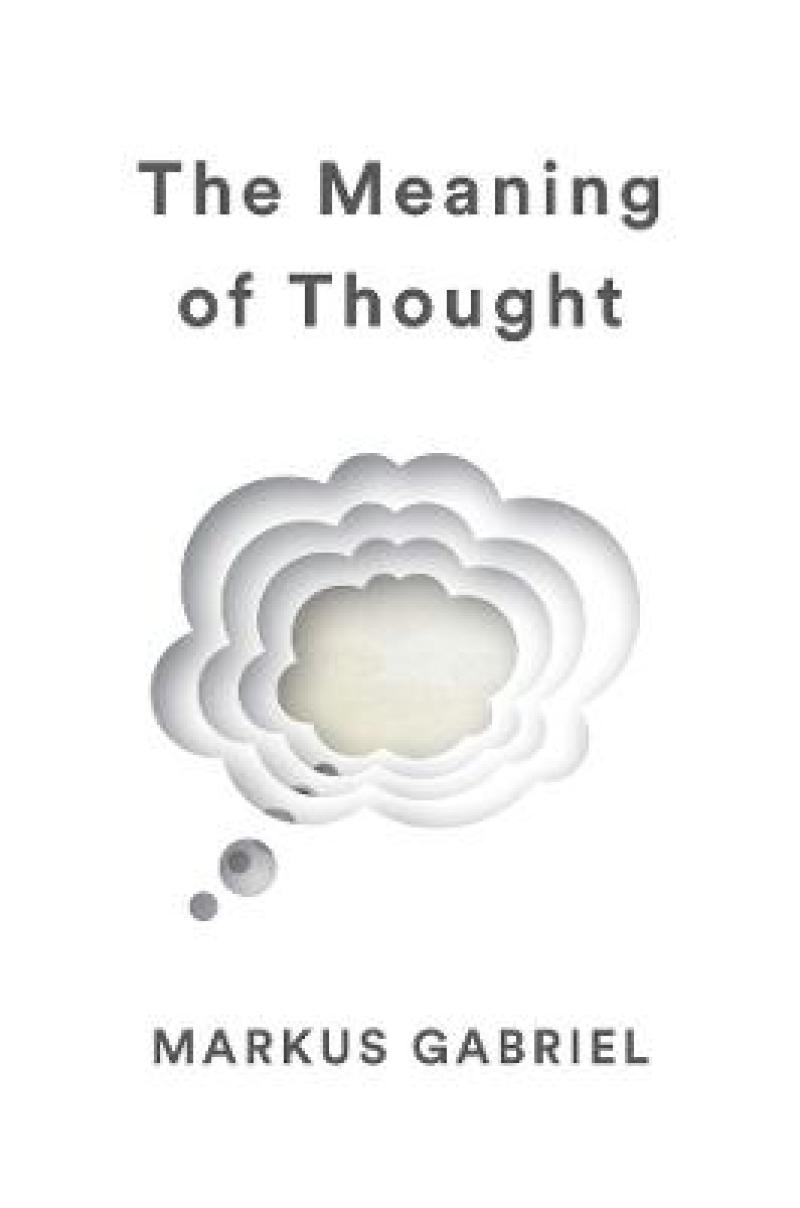<p>“Markus Gabriel is that rare beast, a serious academic philosopher with the wit and talent to write for non-academic audiences – the German equivalent of Simon Blackburn. This engaging book displays his characteristic insight, in the service of pluralistic metaphysics and inclusive humanism. It's an attractive mix.”<br /><b>Huw Price, University of Cambridge</b></p> <p>“One of the youngest protagonists on the global intellectual stage, Markus Gabriel has designed the architecture of a "New Realism" that inspires specialists and readers alike yearning for an intellectual challenge. Conceiving of philosophy as a theory of thought, he shows how understanding our relationship to the world begins with abandoning the premise that we could ever be separated from it. Doing philosophy along the movements of Gabriel's text thus turns into a pleasurable fulfilment of human existence.”<br /><b>Hans Ulrich Gumbrecht, Albert Guérard Professor in Literature, Emeritus, Stanford University</b></p> <p>“Markus Gabriel is an important and critical voice in the discourse about artificial intelligence, data and technology. He criticizes today’s AI mythologies from a fundamentally humanistic perspective about the nature of thought itself. This book will help you navigate the inevitable digitization of individuals and societies.”<br /><b>Andreas Weigend, PhD; global expert on data and privacy, author of <i>Data for the People</i>, former chief scientist at Amazon and advisor to Angela Merkel.</b><br /><br />“<i>The Meaning of Thought</i> is a tour de force, combining a critique of naturalistic metaphysics with a diagnosis of our failure to understand ourselves and our place – our immersion – in reality. Markus Gabriel moves with ease from the history of philosophy to popular culture and the theory and culture of artificial intelligence. His New Realism, which countenances a multitude of realities, nevertheless allows him to expose current enthusiasm for the very idea of computer intelligence as a superstition symptomatic of the dangerous unreflectiveness of modern thought.”<br /><b>Taylor Carman, Chair, Dept of Philosophy, Barnard College<br /><br /></b>"a tour de force"<br /><b> <i>Los Angeles Review of Books</i></b></p> <p><b> </b></p>
In this new book, bestselling philosopher Markus Gabriel steps back from the polemics to re-examine the very nature of human thought. He conceives of human thinking as a ‘sixth sense’, a kind of sense organ that is closely tied our biological reality as human beings. Our thinking is not a form of data processing but rather the linking together of images and imaginary ideas which we process in different sensory modalities. Our time frame expands far beyond the present moment, as our ideas and beliefs stretch far beyond the here and now. We are living beings and the whole of evolution is built into our life story. In contrast to some of the exaggerated claims made by proponents of AI, Gabriel argues that our thinking is a complex structure and organic process that is not easily replicated and very far from being superseded by computers.
With his usual wit and intellectual verve, Gabriel combines philosophical insight with pop culture to set out a bold defence of the human and a plea for an enlightened humanism for the 21st century. This timely book will be of great value to anyone interested in the nature of human thought and the relations between human beings and machines in an age of rapid technological change.
Notes
Preface
Notes
Introduction
Notes
1 The Truth about Thought
Complexity without end
What is thinking?
Humans are not the only thinkers
The scope of the universe
Aristotle’s senses
Common sense made sensible
The meaning of ‘sense’, or: the many ways of being wrong
The loneliness of cosmic exile
Not all objects are things
Are there (really) any red bottle caps?
Thinking is not an irritation of the nervous system
Nothing but the truth
The world as a wish list
Frege’s thoughts
Information and fake news
Our sixth sense
Notes
2 Thought Engineering
The map and the territory
Can computers speak Chinese?
Photos don’t remember Crete
An ant is crawling on a patch of sand, and why this has nothing to do with Winston Churchill
The God of the Internet
Civilization and its discontents
The god of the internet
Emotional intelligence and hidden values in the digital labyrinth
A religion called ‘functionalism’
Thought is not a vending machine …
… and the soul is not a pile of beer cans
Pacemakers for the brain?
The idea of technology, or: how do I build a house?
Total mobilization
Society is not a video game
The Achilles heel of functionalism
Notes
3 The Digital Transformation of Society
It’s perfectly logical, isn’t it?
Some set-theoretical ping-pong
Everything crashes eventually
Do computers really know anything?
Heidegger’s murmurings
One miracle too many
In the age of ‘complete orderability’
Trapped in The Circle?
A fleeting visit to Winden – society as nuclear power plant
One consciousness to go, please!
Who has a problem here?
Notes
4 Why Only Animals Think
The nooscope
On souls and index card boxes
‘And now come, thou well-worn broom’
Illuminated brains
Consciousness first – Tononi meets Husserl
Inside, outside or nowhere
A slimy and intricate piece of reality
Notes
5 Reality and Simulation
Mental cinema meets smartphone
The unavoidable Matrix
In memoriam: Jean Baudrillard
Horror and hunger (games)
Beautiful new world – welcome to The Sims
Are you awake or trapped in your dreams?
Do you know Holland?
Matter and ignorance
What is reality?
A hybrid reality
Fish, fish, fish
The shimmering spectrum of reality
Caesar’s hairs, India’s manhole covers and Germany
Frege’s elegant theory of facts
On the limits of our knowledge
Do thoughts lurk within the skull?
The difference between cauliflower, cognac and the thought of thought
Human AI
The end of humanity – tragedy or comedy?
Notes
The End of the Book – a Pathos-Laden Final Remark
Glossary
Index
